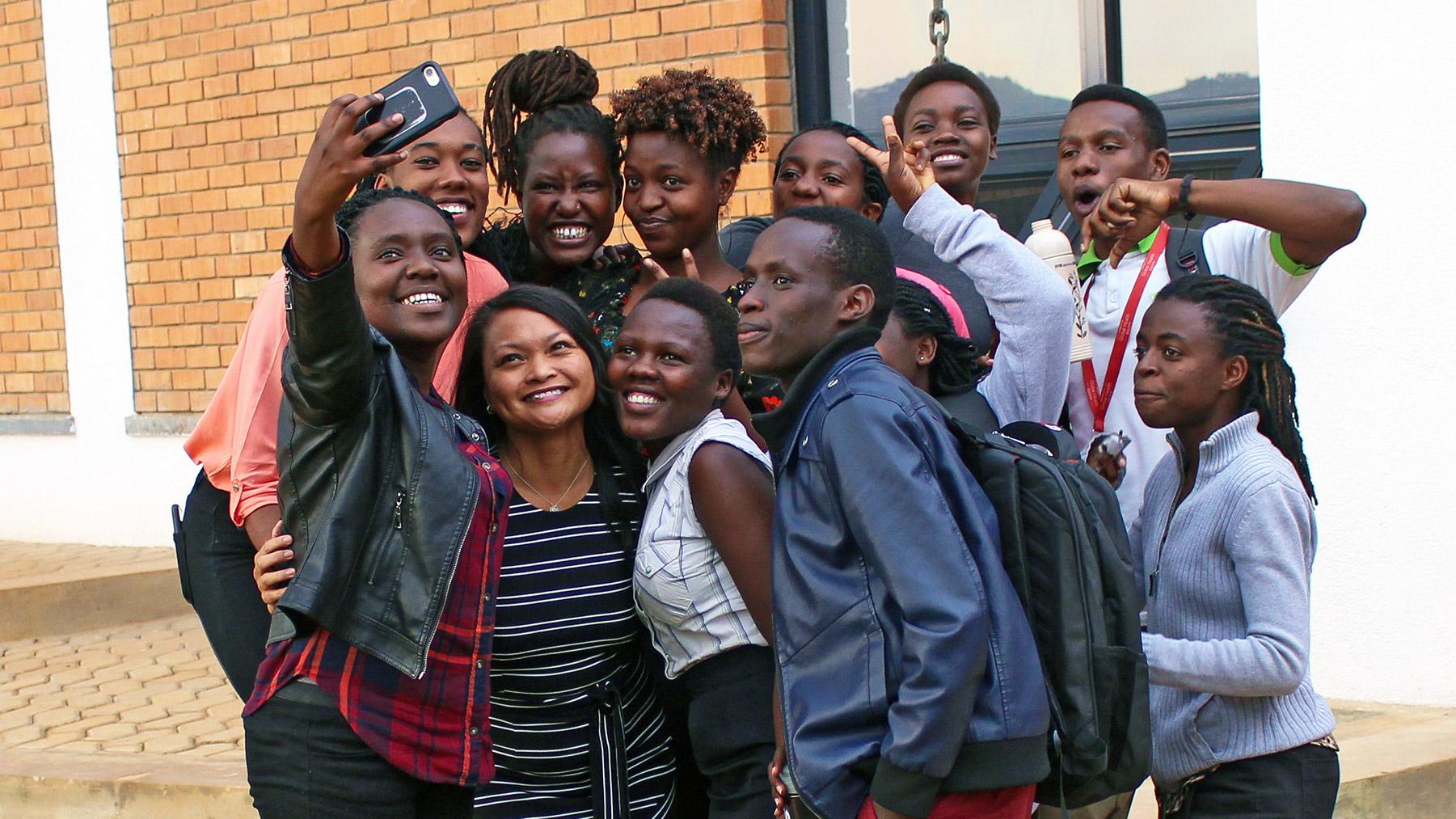Kelli A. Duncan

My research lab (including undergraduate researchers) examines the role of steroid hormones on repair of the nervous system following traumatic brain injury (TBI). Specifically, we study how these steroids mediate inflammation following TBI. I received my PhD in Biology from Georgia State University in 2008, where I studied sex differences in neuronal development. I then continued this research as a post-doc at Lehigh University where I also began to examine the role of steroid hormones following TBI, until starting my own lab here at Vassar College in 2011.
Long bio
BSA, Biological Science, The University of Georgia
MS, Biology, Georgia State University
PhD, Biology (Neuroscience and Behavior), Georgia State University
Post-doctoral Fellow, Biological Sciences, Lehigh University
Research Interest
Traumatic Brain Injury and Steroid Hormones
I consider myself to be a behavioral neuroendocrinologist, that’s the short way of saying that I am interested in how the brain interacts with hormones to alter itself and behavior. My lab examines the role of the endocrine system following traumatic brain injury (TBI). There are a number of biological cascades that occur following TBI. One such cascade involves the regulation of steroid hormones and their receptors. Many of these hormones are neuroprotective and serve to protect the brain and mediate future damage.
Traumatic Brain Injury and the Developing Brain.
Previous research has shown that contrary to popular opinion, injury to the juvenile brain has longer lasting and more detrimental effects than injury to the adult brain. I plan to examine the role of steroid hormones on neuroprotection and neuronal survival in the developing and adult brain; and to determine whether the juvenile brain’s response to injury is similar to the adult response. My work primarily focuses on using the Australian Zebra finch, a passerine songbird, as my model system.
Contact
Box 350
Research and Academic Interests
Role of steroid hormones on Neuroprotection
Interaction between Steroid hormones and Neuroinflammation
Role of age and development on injury to the brain
Departments and Programs
Courses
BIOL 316 Seminar in Neurobiology
NEUR 105 Introduction to Neuroscience and Behavior
Selected Publications
Recent Works
- Duncan KA. Estrogen Formation and Inactivation Following TBI: What we know and where we could go. Front Endocrinol (Lausanne). 2020 May 29;11:345. doi: 10.3389/fendo.2020.00345. PMID: 32547495; PMCID: PMC7272601.
- Arndtsen C, Ballon J, Blackshear K, Corbett CB, Lee K, Peyer J, Holloway KS, Duncan KA. Atypical gene expression of neuroinflammatory and steroid related genes following injury in the photoperiodic Japanese quail. Gen Comp Endocrinol. 2020 Mar 1;288:113361. doi: 10.1016/j.ygcen.2019.113361. Epub 2019 Dec 9. PMID: 31830471.
- Duncan KA, Saldanha CJ. Central aromatization: A dramatic and responsive defense against threat and trauma to the vertebrate brain. Front Neuroendocrinol. 2020 Jan;56:100816. doi: 10.1016/j.yfrne.2019.100816. Epub 2019 Nov 28. PMID: 31786088.
- Cook S*, Hung V*, Duncan KA. Crosstalk between Estrogen withdrawal and NFκB signaling in zebra finches following penetrating brain injury. Neuroimmunomodulation. 2018;25(4):193-200.
- Blackshear K, Giessner S*, Hayden JP*, Duncan KA. Exogenous progesterone is neuroprotective following injury to the male zebra finch brain. J. Neurosci. Res. 2017 May 8; doi: 10.1002/jnr.24060
- Klores M*, Moon JT*, Duncan KA. Expression of glial CBP in steroid mediated neuroprotection in male and female zebra finches. J Chem Neuroanat. 2017 Jan;79:32-37. doi: 10.1016/j.jchemneu.2016.11.002. Epub 2016 Nov 5.
- Duncan KA, Moon J*, Vartosis D*, Zee I*. Injury-induced expression of glial androgen receptor in the zebra finch brain. J Neurotrauma. 2013 Nov 15;30(22):1919-24. doi: 10.1089/neu.2013.2951. Epub 2013 Sep 27.
In the Media
Photos
Download images for non-commercial use, photo credit required.





